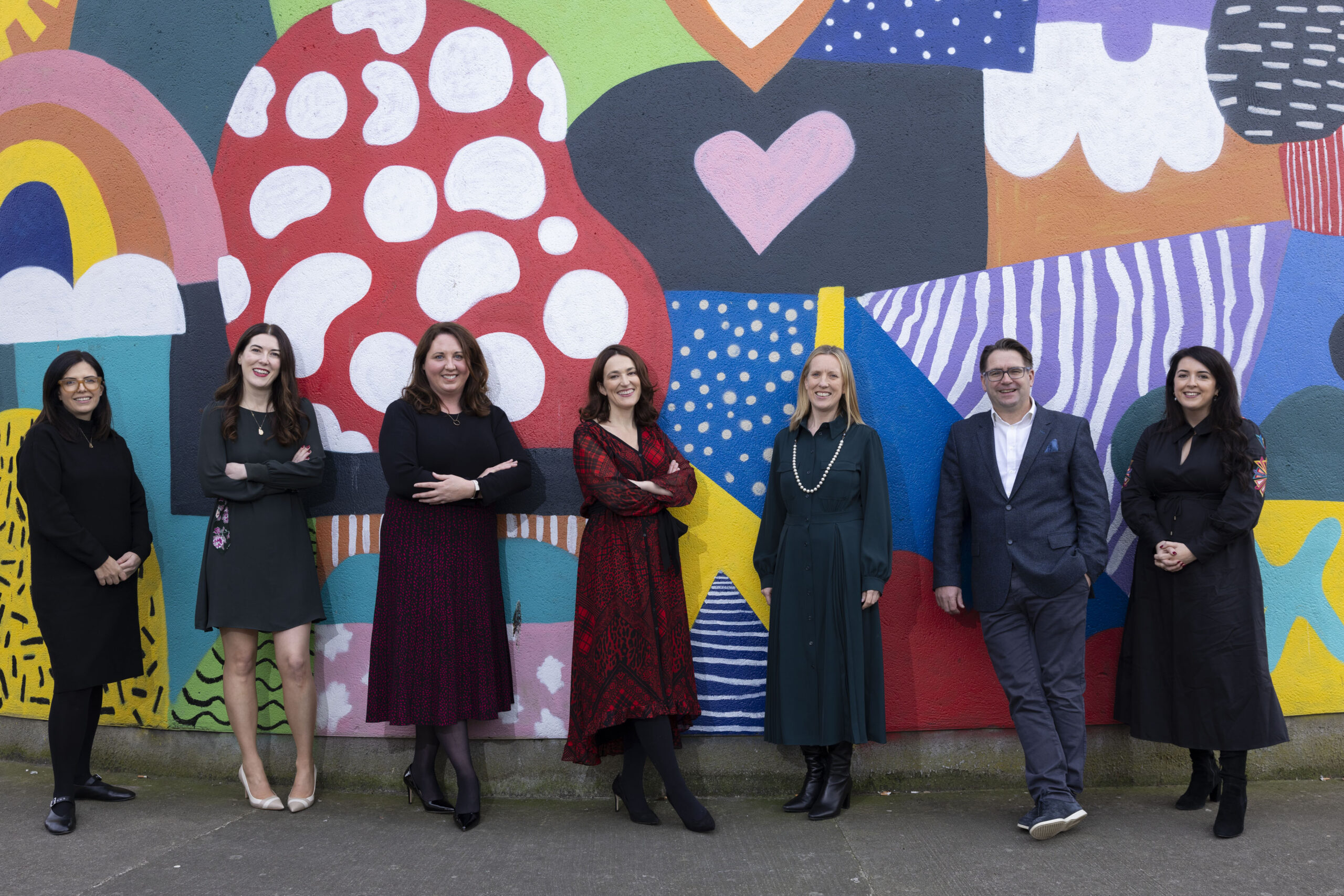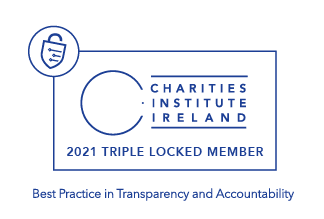Demystifying business models and legal structures for social entrepreneurs
“Should we be a CLG, a LTD or DAC?” It can be easy to get lost in the alphabet of acronyms that float around the business sphere.
It’s common to have a lot of questions as to what company structure makes sense for your organisation, and in particular, whether or not to choose a for-profit or non-profit model and legal structure to help further your social mission.
In this blog post, Social Entrepreneurs Ireland has combined some of the core questions in an effort to demystify the models and better inform your decision-making process. At the end of 2022, we were delighted to co-host an event with long-term supporters and partners A&L Goodbody LLP for members of our alumni community on this topic.
The free legal-education session was provided by the In-House Pro Bono Lawyers Network (PBN), a community of lawyers employed in-house by large organisations who collectively believe in the value of providing pro bono work. The PBN speakers came from Bank of America (corporate partner of our Ideas Academy), BNP Paribas, PTSB, TikTok, and Uisce Éireann.
Please do keep in mind that no particular legal structure is the “best”. Each has its pros and cons, and certain structures will be more suitable to different types of organisations.
Social Entrepreneurs Ireland is business structure-neutral when it comes to choosing who we support. We back social entrepreneurs with scalable ideas to solve social problems, regardless of the business model involved.

ALG In-House Pro Bono Lawyers Network.
Picture by Shane O’Neill, Coalesce.
Why form a company at all?
Often self-employed people will choose to establish themselves as a sole trader, and for some social entrepreneurs they wonder why any other type of structure would be needed.
While that decision is ultimately up to the entrepreneur, we believe there are a number of key reasons as to why you should establish your organisation as a company:
- It provides your members and directors with the protection of limited liability.
- It gives the opportunity for the organisation to continue its work in the absence of the founder(s).
- A company can enter into contracts in its own name, rather than that of the individual.
- A company can enter into legal agreements in respect of its assets.
- Company structures cement elements of transparency and accountability within an organisation.
- It ensures appropriate oversight of company operations.
- It opens up funding opportunities including state and private sector grants and investment.
What are the common structures used by social entrepreneurs?
Traditionally speaking most companies choose some form of ‘limited company’ structure as these structures provide the most protections for all parties involved in the running and operation of the company.
These structures include:
- A Private Company Limited by Shares (LTD) – most common trading company type overall.
- A Designated Activity Company Limited by Shares (DAC) – used for a specific purpose or a regulated company with a stated objects clause.
- A Company Limited by Guarantee not having a Share Capital (CLG) – mainly non-profit, charitable or property management companies.
- A Public Limited Company (PLC) – usually for large trading companies.
In the social enterprise space, the most common forms of company structure are those of Company Limited by Shares (LTD) and Company Limited by Guarantee not having a Share Capital (CLG). In short, an LTD allows the company to generate and disburse profits to shareholders. A DAC allows similar but has a stated objects clause, often related to its social mission.
In the case of CLGs, any profits generated must remain within the company and be reinvested in the mission. It is this reason that most people consider LTD and DAC as ‘for-profit’ structures, and CLG as a ‘non-profit’ structure.
Unlike in other countries, there is currently no tailored legal form for social enterprises under Irish law, but it is worth noting that Ireland’s first National Social Enterprise Policy 2019-2022 defines a social enterprise as “an enterprise whose objective is to achieve a social, societal or environmental impact, rather than maximising profit for its owners or shareholders. It pursues its objectives by trading on an ongoing basis through the provision of goods and/or services, and by reinvesting surpluses into achieving social objectives. It is governed in a fully accountable and transparent manner and is independent of the public sector.” This is consistent with a CLG structure. However, the Policy acknowledges that the definition of social enterprise is not static and is continuing to evolve.
Should I choose a ‘for-profit’ or ‘non-profit’ model for my company?
This is a complex question, and is a decision that should be taken carefully by each organisation. A useful thing to consider is what sort of investment channels does your business model lend itself to i.e., how is your organisation going to make money? If the answer to that is through fundraising or grants, or perhaps social finance, then a CLG structure might be the best fit. A CLG can also generate sales as long as the profits are reinvested in the company.
However, if the answer to that question is through commercial investors, loan finance, or traditional sales, then a for-profit structure might make the most sense.
It’s also worth highlighting that many start-ups will alter their business model as they grow, relying heavily on grants and fundraising in the early stages, but transitioning to a more sales and/or social finance reliant structure as they begin to grow.
The Social Entrepreneurs Ireland community is made up of hundreds of organisations of all different structures, all united by a commitment to delivering accelerated social change through the power of people.
What should I be thinking about when making this decision?
As has been mentioned, deciding on a for-profit or non-profit model for your organisation requires careful consideration. In doing so, it can be useful to ask yourself the following questions:
- Do I fully understand my business model yet, and am I sure that this is the right one for my organisation?
- Do I need initial investment to help grow and scale our work, or can I simply generate enough revenue as I go?
- If I do need initial investment, how much will I need?
- Is it realistic to think I can raise that initial investment through fundraising, and/or grants?
- If not, how investable is my model, or how suitable would loan financing be to my business?
- If commercial investment seems like the better option, what can I do to protect my social mission as much as possible?
How can I find out more?
In 2019, Social Entrepreneurs Ireland was one of the contributors to a Legal Structures Guide produced by the Thomson Reuters Foundation and Mason Hayes & Curran LLP. The Guide provides an overview of the range of legal structures that are available to social entrepreneurs in Ireland, as well as the pros and cons associated with each. It also contains a decision tree, which is intended to be a starting point to assist you in selecting the most appropriate legal structure for your organisation.
Additionally, the Guide features case studies from five established Irish social enterprises that have adopted different types of legal structure, three of whom are Social Entrepreneurs Ireland alumni.
If you are based in Northern Ireland, here is some useful information on legal structures and setting up your organisation.
Selecting the right legal business structure that aligns with your social mission, financial goals, and long-term vision is undoubtedly a big decision, but we hope this blog post has helped you on your journey.
Each of the structures mentioned above has its advantages and disadvantages, and the information contained in this post should not be considered legal advice. We would encourage all social entrepreneurs to consult with a legal expert on this issue where appropriate.
By understanding your options and making an informed decision, you can lay the foundation for a thriving mission-driven organisation that leaves a positive impact on society. Onwards!
Recent Posts
Check out more news from Social Entrepreneurs Ireland





